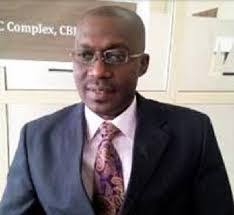The Manufacturers Association of Nigeria (MAN) has said that the latest foreign exchange (FX) policy by the monetary authorities will further increase operational costs for businesses and trigger exchange rate volatility due to uncertainties about future exchange rate trend.
The Director-General of the association, Mr. Segun Ajayi-Kadir, who made this remark during a media chat, pointed out that floating exchange rates usually makes economies to be more susceptible to external shocks.
Ajayi-Kadir explained that though many economies globally adopted the floating exchange rates, the option was often mixed in most countries, adding, however, that the association expects that with Nigeria joining the rank of countries with floating FX rates the lingering FX scarcity in the economy will reduce as currency arbitrage activities would be curtailed.
The industrialist clarified: “We expect increase import costs and currency depreciation may reduce import flows, which is bad for manufacturers that depend on raw materials not locally available.
“Also, we foresee economic uncertainties and exchange rate volatility due to the difficulty in predicting predict future exchange rate movements and planning accordingly. “Also, floating exchange rates make economies more susceptible to external shocks.”
Despite the immediate challenges of the new policy, Ajayi-Kadir projected that in the long run, the FX regime would boost-competitiveness of Nigeria’s export and lead to improved market efficiency for adequate FX access and a rise in capital flows.
According to him, the MAN believes that floating the Naira remains an important step towards frontally addressing the lingering abuses in the nation’s FX market.
The Director-General said: “We are hopeful that the floating of the Naira will restore sanity in Nigeria’s foreign market and advise members to see this new development as a long-awaited opportunity to soften the lingering challenges of the foreign exchange crisis.
“Given a floating system, we are optimistic that the official and parallel market rates will eventually converge and will create headroom for investors to seamlessly have access at a competitive rate”, the MAN boss added.
It would be recalled that the Central Bank of Nigeria (CBN) had on Tuesday, June 13, directed commercial banks and dealers in the FX market to sell FX which is at a market-determined rates in line with President Bola Tinubu’s promise to ensure an end to exchange rate disparities in official and parallel markets.
The directive implies that banks can now sell FX at market-determined rates, thereby moving Nigeria to join the rank of countries using the floating exchange rates regime.






